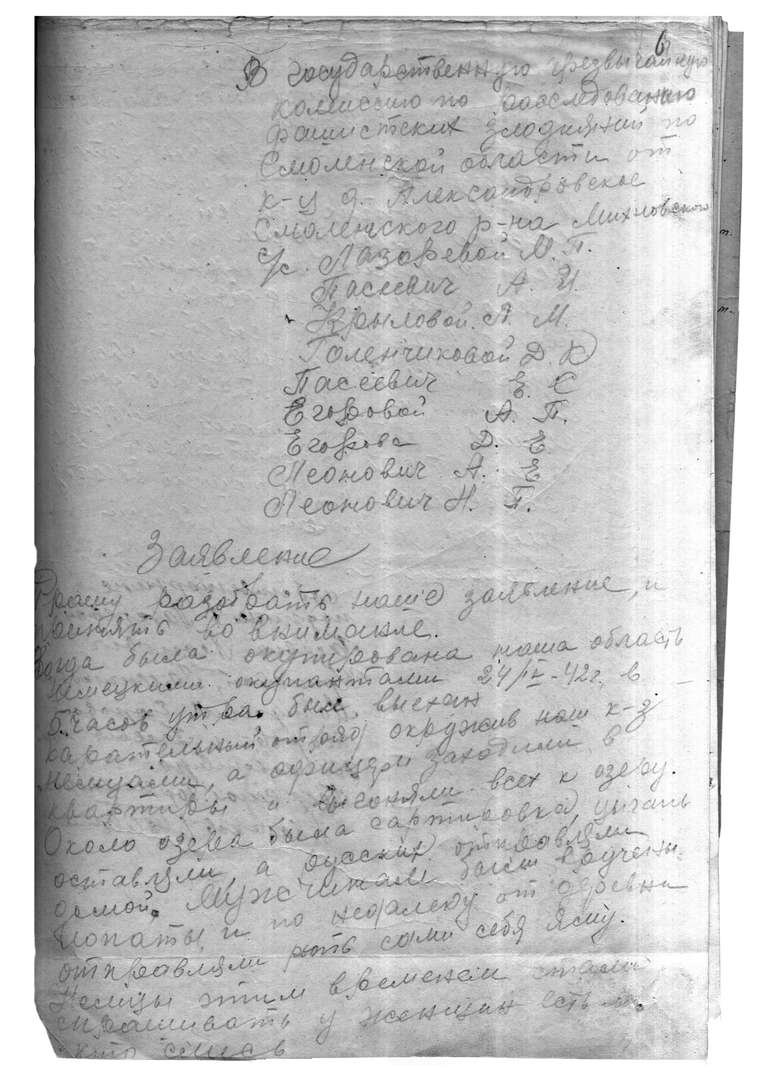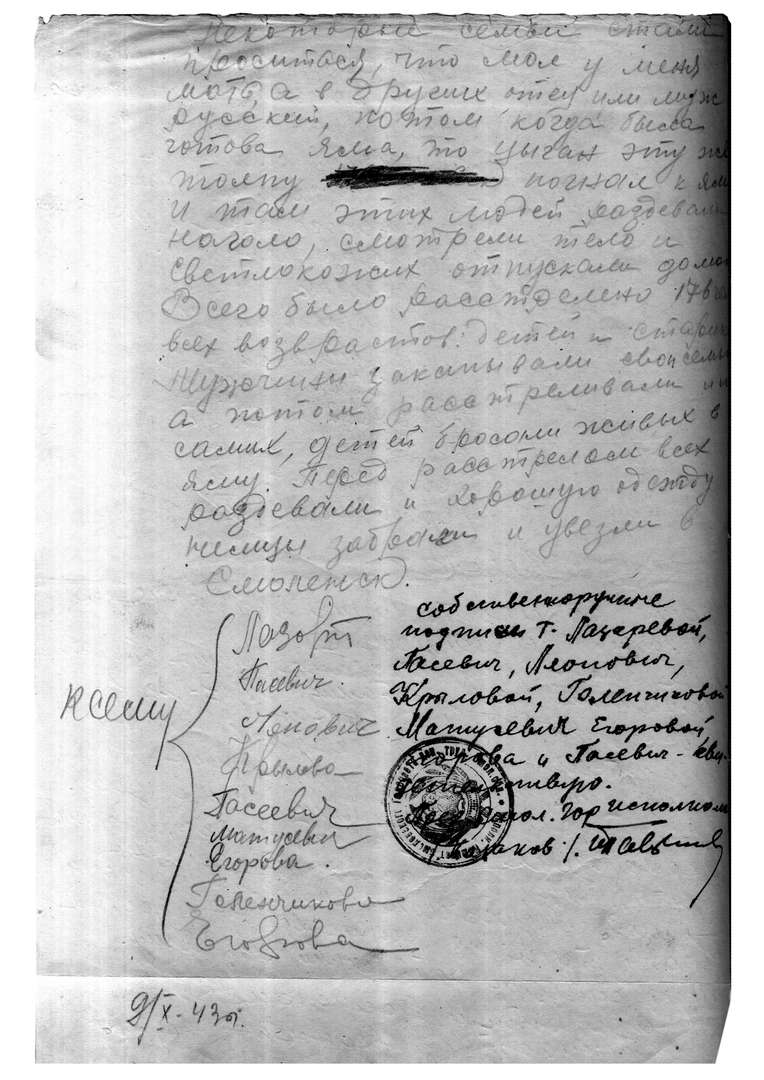To the State Extraordinary Commission for the Investigation of Fascist Atrocities in the Smolensk Region from the kolkhoz workers of the village of Aleksandrovskoe, Smolensk District, Village Soviet Mikhnovka:
Lazareva, M.P.
Paseevich, A.I.
Krylova, L.M.
Golenchikova, D.K.
Paseevich, E.S.
Egorova, A.P.
Egorova, D.E.
Leonovich, A.E.
Leonovich, N.P.
Submission
We request that our submission be accepted and dealt with.
After our region had been occupied by the Germans, a penalty unit [death squad] entered our village at five o’clock in the morning on 24 April 1942. Our kolkhoz was surrounded by the Germans while officers entered the houses and drove everyone out to the lake. A selection took place at the lake, Roma* were kept there, the Russians sent back home. The men were given shovels and ordered to dig a pit for themselves not far from the village.
Meanwhile, the Germans began asking the women if there was anybody of mixed race. Some families began to beg [and said] that the mother, the father or husband were Russians. Later, when the pit was ready, the Germans drove the Roma* to the pit. Once there, they were forced to strip naked and the fair-skinned were sent home. At total of 176 people of all ages – including children and the elderly – were shot dead.
The men filled in the pit with their families’ dead bodies, and then they themselves were shot. The children were thrown into the pit alive [by the Germans]. Everyone had to undress before being shot. The Germans took the best clothes for themselves and took them away to Smolensk.
[sgd] Lazareva
[sgd] Pase[e]vich
[sgd] Leonovich
[sgd] Krylova
[sgd] Matusevich [Leonovich]
[sgd] Paseevich
[sgd] Egorova
[sgd] Golenchikova
[sgd] Egorova
9 October 1943









